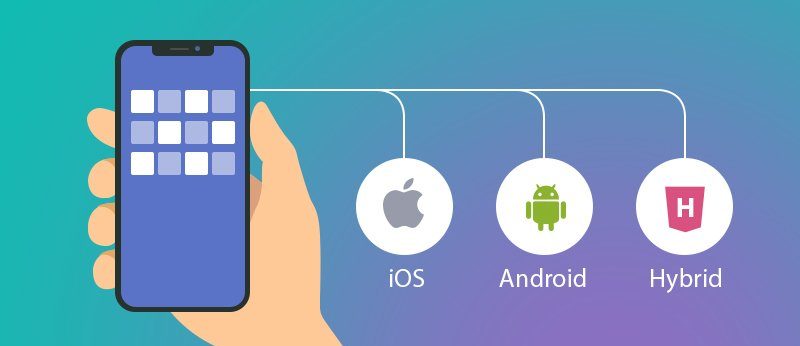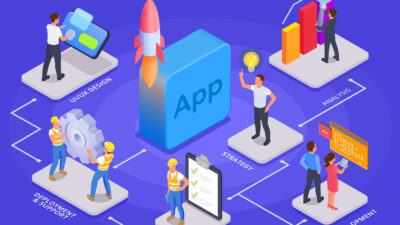Hybrid mobile app development services involve creating applications that can run on multiple platforms, such as iOS and Android, using a single codebase. This approach combines elements of both native and web applications, offering a cost-effective and efficient solution for businesses looking to reach a wider audience. Here are some key aspects of hybrid mobile app development services:
1. Cross-Platform Compatibility
- Single Codebase: Write once, run anywhere. The same code can be deployed on both iOS and Android platforms.
- Consistent User Experience: Ensures a uniform look and feel across different devices and operating systems.
2. Frameworks and Tools
- Ionic: A popular framework that uses web technologies like HTML, CSS, and JavaScript.
- React Native: Developed by Facebook, it allows for building mobile apps using JavaScript and React.
- Flutter: Google’s UI toolkit for building natively compiled applications for mobile, web, and desktop from a single codebase.
- Xamarin: A Microsoft-owned framework that uses C# for cross-platform development.
3. Cost-Effectiveness
- Reduced Development Costs: Lower costs compared to developing separate native apps for each platform.
- Faster Time-to-Market: Quicker development and deployment due to a single codebase.
4. Performance
- Near-Native Performance: Modern hybrid frameworks offer performance close to that of native apps.
- Optimized for Speed: Efficient use of device capabilities and hardware acceleration.
5. Maintenance
- Easier Updates: Simplifies the process of updating and maintaining the app across platforms.
- Bug Fixes: Fixes and updates can be rolled out simultaneously to all platforms.
6. Integration Capabilities
- APIs and Plugins: Access to a wide range of plugins and APIs for integrating device features like camera, GPS, and storage.
- Third-Party Services: Easy integration with third-party services and backend systems.
7. User Interface (UI) and User Experience (UX)
- Customizable UI: Flexible and customizable UI components to match brand identity.
- Responsive Design: Ensures the app looks and functions well on various screen sizes and resolutions.
8. Security
- Data Encryption: Implement robust security measures to protect user data.
- Secure Authentication: Features like biometric authentication and secure login mechanisms.
9. Support and Maintenance
- Ongoing Support: Continuous support and maintenance to ensure the app remains functional and up-to-date.
- Scalability: Ability to scale the app as the user base grows.
10. Development Process
- Requirement Analysis: Understanding client needs and business objectives.
- Design and Prototyping: Creating wireframes and prototypes for client approval.
- Development: Coding and integrating features as per the design.
- Testing: Rigorous testing to ensure the app is bug-free and performs well.
- Deployment: Launching the app on app stores and ensuring it meets all guidelines.
- Post-Launch Support: Providing updates, bug fixes, and new features as needed.
11. Industries Served
- Healthcare: Patient management, telemedicine apps.
- E-commerce: Online shopping, product catalogs.
- Finance: Mobile banking, payment gateways.
- Education: E-learning platforms, student management systems.
- Entertainment: Streaming services, gaming apps.
12. Advantages
- Wider Reach: Ability to target both iOS and Android users.
- Cost Savings: Reduced development and maintenance costs.
- Faster Development: Quicker turnaround times compared to native development.
13. Challenges
- Performance Limitations: May not be as fast or smooth as native apps for highly complex applications.
- Limited Access to Native Features: Some native features may not be fully accessible or may require additional plugins.
14. Choosing the Right Service Provider
- Experience and Expertise: Look for a provider with a proven track record in hybrid app development.
- Portfolio: Review their previous work to assess quality and capability.
- Client Reviews: Check testimonials and reviews from previous clients.
- Support and Maintenance: Ensure they offer reliable post-launch support.
By leveraging hybrid mobile app development services, businesses can create versatile, cost-effective, and high-performing applications that cater to a broad audience across different platforms.




